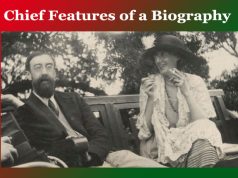Walt Whitman’s Poetry: Chief Characteristics
Walt Whitman’s Poetry Chief Characteristics
Walt Whitman’s Poetry: Chief Characteristics
Introduction:
Walt Whitman, renowned as the “Bard of Democracy” and the “Father of Free Verse,” stands as an influential figure in American poetry. Born in 1819, Whitman’s literary contributions span the mid-19th century, encapsulating the transformative period of American history marked by the Civil War, industrialization, and national expansion. This article delves into the key features of Walt Whitman’s poetry, unraveling the distinctive elements that define his remarkable body of work.
Free Verse:
A defining characteristic of Whitman’s poetry is his liberation from traditional forms through the use of free verse. Departing from the rigidity of rhyme and meter, Whitman’s lines flow freely and organically. This departure from convention was revolutionary and became a hallmark of Whitman’s style. Free verse granted him the liberty to express ideas and emotions without the constraints of a predetermined structure, reflecting the vastness and diversity of America.
Individualistic Reverence:
Central to Whitman’s poetry is the reverence for the individual. His magnum opus, “Leaves of Grass,” serves as an ode to the common man, embodying what Whitman referred to as a “song of the self.” Through his verses, Whitman extols the dignity and worth of every individual, irrespective of social standing or background. This emphasis on individualism contributes to the democratic spirit of his work, encapsulating the optimistic and egalitarian ideals of America.
Nature as Metaphor:
Whitman’s poetry is deeply intertwined with nature. He often draws parallels between the natural world and the human experience, blurring the lines between the two. Whitman’s connection with nature serves as a metaphor for the interconnectedness of all living things. In his poems, the landscape becomes a canvas on which he paints the struggles, joys, and complexities of human existence. This ecological consciousness, ahead of its time, resonates with modern environmentalist perspectives.
Democratic Ideals:
Inclusivity and the celebration of diversity define Whitman’s poetry. At a time when America grappled with issues of slavery and social inequality, Whitman’s writings advocated for national unity and the inclusion of all its people. He celebrated the multiplicity of voices and experiences, giving prominence to the marginalized and downtrodden. Whitman’s vision of a diverse and harmonious America was progressive for its time and remains pertinent in discussions of inclusivity today.
Sexuality:
Walt Whitman’s exploration of sexuality, particularly homoeroticism, was groundbreaking and controversial in the 19th century. Although he did not explicitly employ the language of his time to discuss same-sex relationships, his poems often contain sensual and intimate imagery. This aspect of his work challenged societal norms and contributed to the broader discourse on sexuality in literature. Whitman’s openness paved the way for later generations of writers to explore themes of love and desire more freely.
Spirituality:
Whitman’s poetry reflects a profound spiritual odyssey. While not aligned with any particular religious doctrine, his work delves into the mystical and transcendent aspects of human existence. The divine, for Whitman, is discovered in the everyday experiences of life. His poetry serves as a spiritual guide, urging readers to seek meaning and connection in the world around them.
Conclusion:
Walt Whitman‘s poetry stands as a testament to the transformative power of language and the capacity of art to shape cultural and societal norms. His pioneering elements—free verse, celebration of the individual, identification with nature, inclusivity and diversity, exploration of sexuality, and a spiritual odyssey—leave an enduring imprint on American literature. Whitman’s legacy persists, and his poetry continues to inspire readers to plumb the depths of their own humanity while embracing the diversity that defines the American experience. 0 0 0.
List od Some Critical Essays on Walt Whitman’s Poetry
- Theme of Death in Walt Whitman’s Poetry
- Theme of Sex and Love in Whitman’s Poetry
- Mystic Note in Walt Whitman’s Poetry
- Theme of Democracy in Walt Whitman’s Poetry
- Problem of Structure in Walt Whitman’s Poetry
- Style of Walt Whitman’s Poetry
- Egotism in Walt Whitman’s Poetry
- Symbolism in Walt Whitman’s Poetry
- Note of Optimism in Walt Whitman’s Poetry







